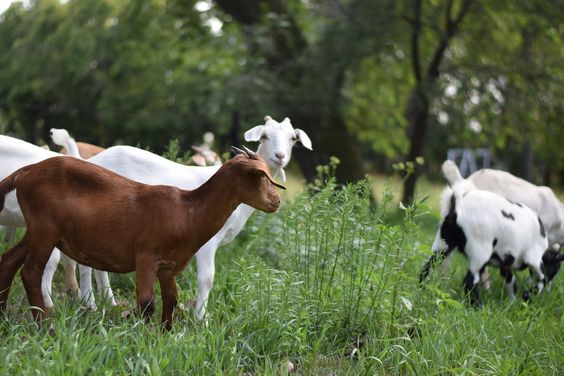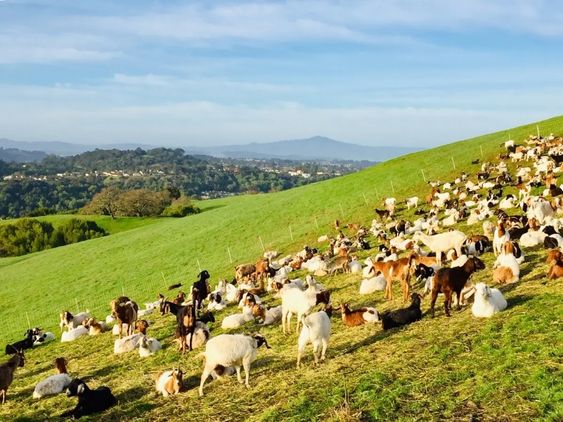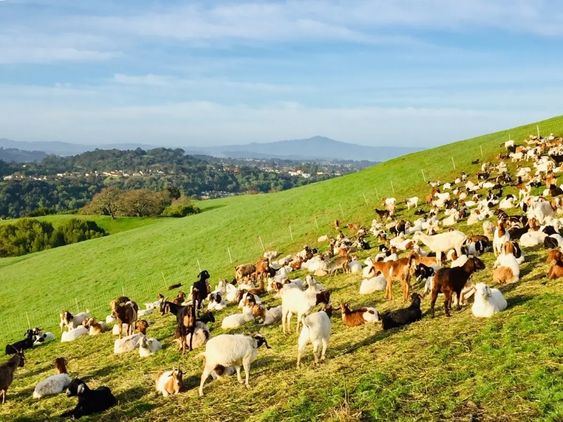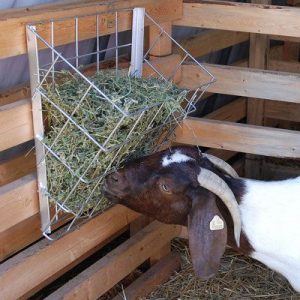Sustainable land management is crucial in today’s world, where the balance between agricultural productivity and environmental preservation must be maintained. Among the various livestock, goats have emerged as versatile and invaluable animals in promoting sustainable land management practices.
1. Natural Weed Control and Vegetation Management
One of the most notable roles of goats in sustainable land management is their ability to control unwanted vegetation and weeds. Goats have a unique browsing behavior, preferring to eat a wide variety of plants, including many species that are considered weeds. This natural weed control reduces the need for chemical herbicides, which can have detrimental effects on soil health and water quality.

Key Benefits:
- Reduction of Invasive Species: Goats effectively manage and reduce invasive plant species that can outcompete native flora, promoting biodiversity and healthier ecosystems.
- Fire Prevention: By consuming dry and overgrown vegetation, goats help reduce the fuel load, decreasing the risk of wildfires in vulnerable areas.
2. Soil Fertility and Health Enhancement
Goats contribute to soil fertility and health through their natural grazing and manure deposition. Their browsing habits can help maintain a balance between different plant species, preventing any single species from dominating and degrading the soil.

Key Benefits:
- Manure as Fertilizer: Goat manure is a rich source of nutrients that improves soil structure and fertility. Unlike chemical fertilizers, it releases nutrients slowly, enhancing long-term soil health.
- Soil Aeration: As goats graze, their hooves naturally aerate the soil, promoting better water infiltration and root growth for plants.
3. Erosion Control
Erosion is a significant issue in many agricultural landscapes, leading to soil loss and reduced land productivity. Goats can play a crucial role in erosion control by maintaining vegetative cover and improving soil structure.

Key Benefits:
- Maintaining Ground Cover: Goats help maintain ground cover by grazing on aggressive weeds and allowing grasses and other desirable plants to thrive, which stabilizes the soil and prevents erosion.
- Slope Stabilization: On sloped terrains, goats’ grazing patterns can help establish and maintain vegetation that holds the soil in place, reducing runoff and soil loss.
Not to mention, our company can help you to start by giving you all the necessary information you need to get started if not yet in the business. Please check our online shop, we have all the standard business proposals for different capacities at very a cheap price made by the best agricultural specialists as well as Standard design plans that are made by the best agricultural architects around the globe. please visit our online shop now using the links below to witness by yourself
Design plans (FARM HOUSE DESIGNS – Kimd Construction & Farm Consultants)
Business plans (BUSINESS PLANS & PROPOSALS – Kimd Construction & Farm Consultants)
Welcome back from visiting our shop, hope you have placed your order for any of our products or you can place it after navigating more of our informative articles.
So let us continue with the article!
4. Agroforestry and Integrated Farming Systems
Integrating goats into agroforestry and mixed farming systems can enhance overall farm productivity and sustainability. Goats can be raised alongside crops and other livestock, creating a symbiotic relationship that benefits the entire agricultural system.
Key Benefits:
- Complementary Grazing: Goats can graze in areas where other livestock cannot, making use of otherwise underutilized land and resources.
- Crop Residue Utilization: After harvest, goats can graze on crop residues, reducing waste and contributing to nutrient cycling within the farm ecosystem.
5. Economic Viability and Resilience
Sustainable land management practices involving goats can also improve the economic viability and resilience of farming operations. Goats are relatively low-maintenance animals that can thrive in various environments, making them accessible to small-scale and resource-limited farmers.
Key Benefits:
- Diversified Income Streams: Goats provide multiple products, including meat, milk, fiber, and manure, offering diversified income streams for farmers.
- Risk Mitigation: By incorporating goats into farming systems, farmers can mitigate risks associated with crop failures or market fluctuations, enhancing overall farm resilience.
Conclusion
Goats are more than just livestock; they are essential partners in sustainable land management. Their unique grazing habits, ability to improve soil health, and role in controlling invasive species make them invaluable for promoting ecological balance and agricultural productivity. By integrating goats into sustainable farming practices, farmers can achieve a harmonious balance between productivity and environmental stewardship, ensuring the health and resilience of their land for future generations. Embracing goats as a tool for sustainable land management is not only an environmentally sound decision but also a step towards a more sustainable and prosperous agricultural future.




